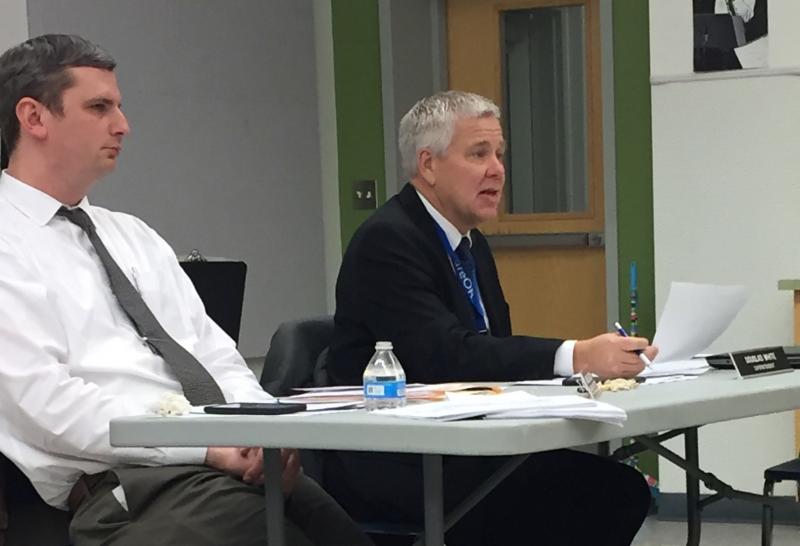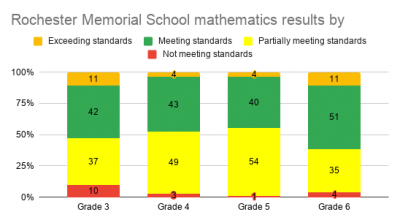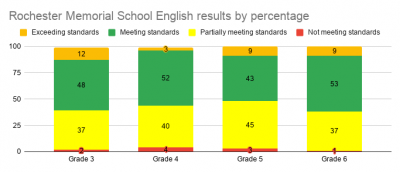Rochester School Commitee takes issue with MCAS results
ROCHESTER — Administrators presenting MCAS scores faced pretty significant pushback from school committee members on their definition of success on the test and future plans.
In presenting the spring 2019 results on Dec. 5, Rochester Memorial School Principal Derek Medeiros reminded his audience that this is only year 2 of new scoring system on the computer-based test.
He explained that for most categories his school scored a few points lower than where it was last year, but because of the way that the MCAS changes the targets based on the previous year it looks as if their scores on the “achievement” category were much lower,
Superintendent Doug White explained that testmakers changed the test to mirror other national assessments, where half of students are above the median and half are below. He also said that because scores were lower this year, next year the targets for RMS will be lower.
“Our students didn’t go backwards, they stayed the same,” White said to explain the results.
Medeiros also explained that although his students didn’t do well at beating themselves, they consistently performed above the state average
School Committee member Sharon Hartley was alarmed by many of the results.
Last year she was worried about the science category, where the school got zero points out of the possible four. This year, they only got one point.
“I would like to know that that [score] was an alarm going off,” she said to Medeiros, asking him if he was analyzing that data further to continue to improve.
He said that the school was.
Hartley was also concerned last year when the school got only eight points of 12 for achievement. This year, the school got only two points out of the 12, with Hartley noting that that score, “would have been worse had the number been higher in 2018.”
She also wanted more information on the performance of low-performing students, who are considered as a special category in the new test.
Hartley also disagreed with the way that Medeiros chose to move forward. Three of his five action points were to continue to use a reading program, the Chromebooks that students use to take the test on, and flex time for students and professional development time for teachers.
She was concerned about continuing those methods.
“We know that if you continue doing the same thing you’re going to get the same results,” she said.
Medeiros responded that the reading plan was just created two years ago, and he considered the school very much moving into it.
He also defended his goal to keep using the Chromebooks by saying that “across all three schools you’ll see that.”
Hartley also took issue with the fact that students being a few points above state average in scaled scored was listed as a “point of pride” in the results.
“Slightly above average, to me as a school committee member, would not be a point of pride,” she said.
Another committee member, Anne Fernandes, agreed with Hartley on this point.
“We want to go forward. Meeting the target is not enough,” she said.
Rochester Memorial teacher Tara Nelson was in the audience, and provided a slightly different perspective.
She called being a few points above the scaled score “wonderful,” and said “kudos to our students and teachers on that.
As a parent and as a teacher, she said she doesn’t always care as much about the numbers, on standardized tests, but prioritizes other ways that students are showing learning, growth and initiative.
“My nine year old is writing facts on World War II on his own, and that is more important to me” than a test score, Nelson said.
After that point, Hartley conceded that “education is more complicated now than it has been,” but also added that “I want this school to be the best that it can be. Let’s talk about it and let’s get better.”
Medeiros defended his portrayal of the results by noting that he “chose to keep my report positive.”
School committee member Robin Rounseville spoke to Nelson’s point when she asked if “at one of next meetings we can talk about other assessment techniques.”
















